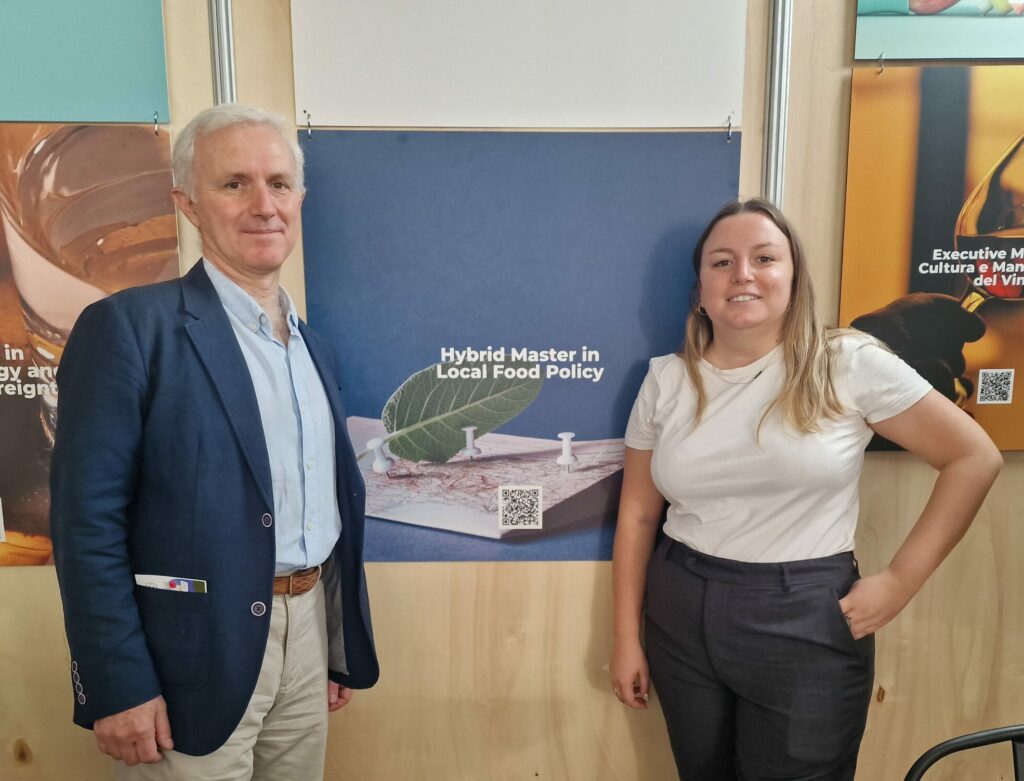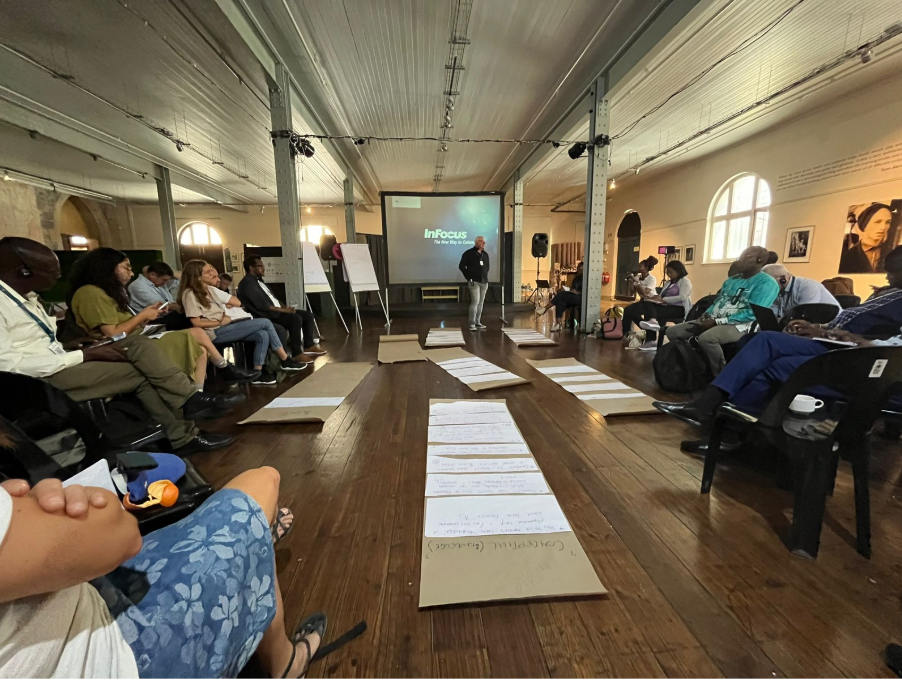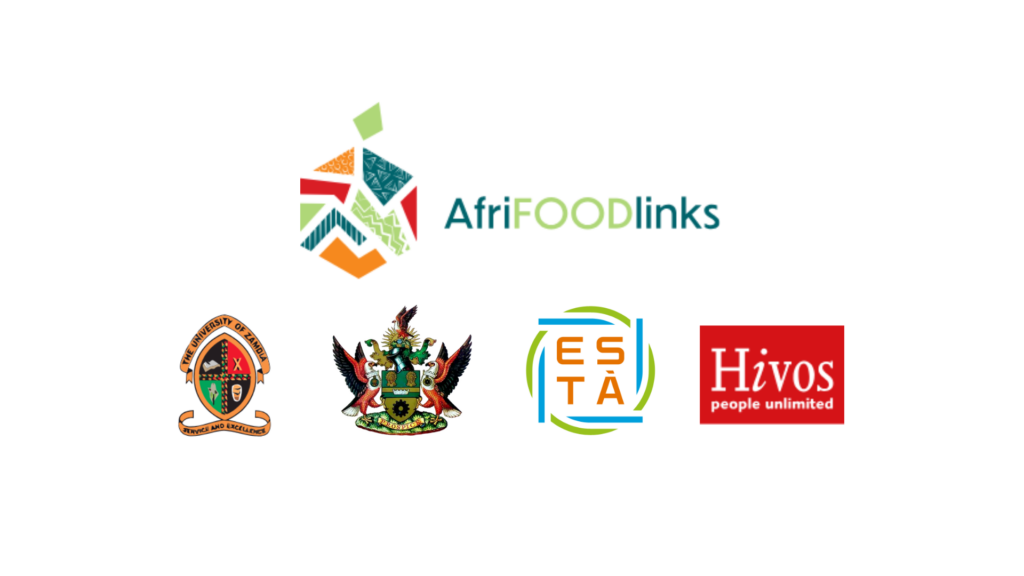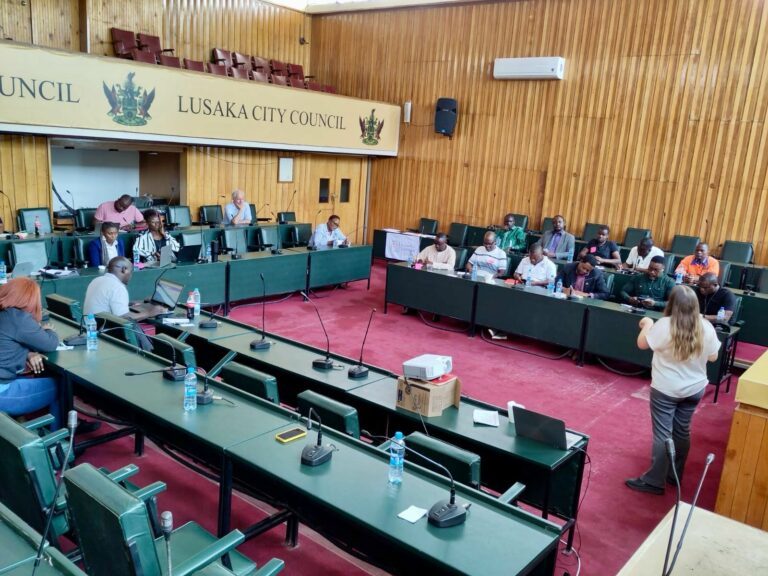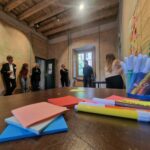As part of the #AfriFOODlinks project EStà organized a Living Lab in Lusaka, Zambia in collaboration with University of Zambia and Hivos to explore the topic and opportunities of local food policies.
The goal was to facilitate a workshop aimed at city officials to bring out the importance of a local food desk through capacity building activities.
After exploring virtuous examples at the international level, the meeting concluded with a participatory outlining of the agenda for the City of Lusaka Food Desk.
In the field, our colleagues Andrea Calori, Bianca Minotti, Giacomo Petitti di Roreto.
Through open dialogue and co-design, the EStà Living Lab helped:
• Create cohesion among key stakeholders
• Foster the participants’ engagement and ownership of the process
• Understand shared issues and needs
• Legitimize decision-making processes
• Build capacity for collaborative governance
• Develop a shared vocabulary and knowledge base
• Clarify common goals and visions
By doing so, LLs served as catalysts for open innovation in policy-making,
enabling local actors to take ownership and co-create solutions that are both
effective and grounded in real-world complexity.
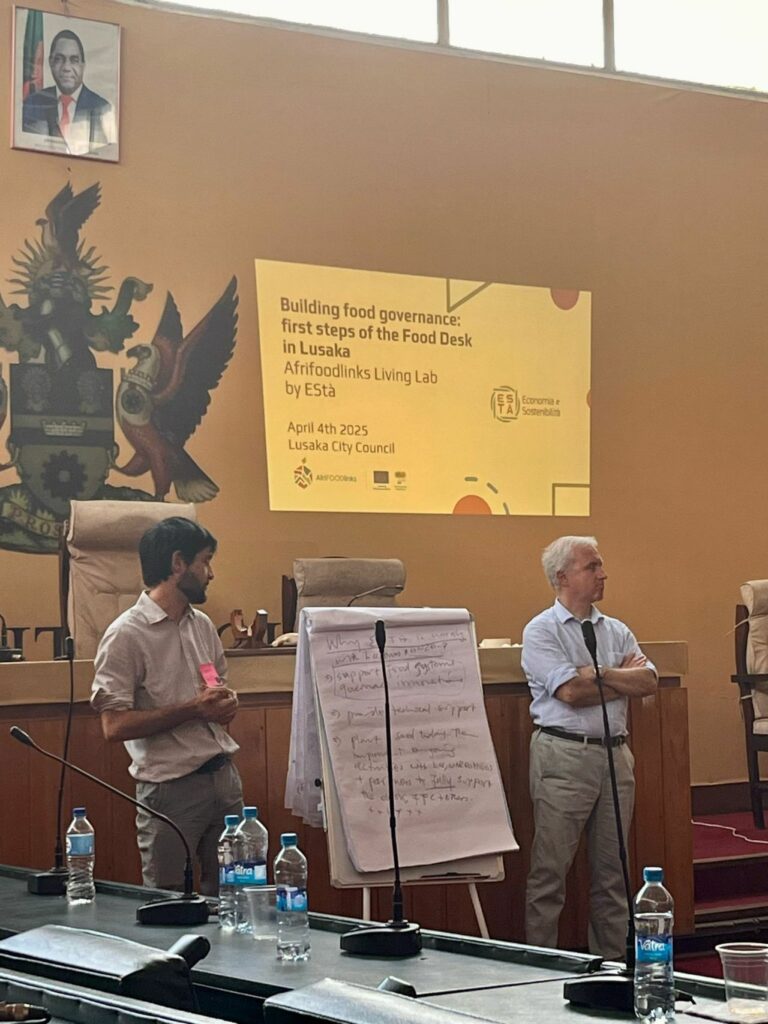
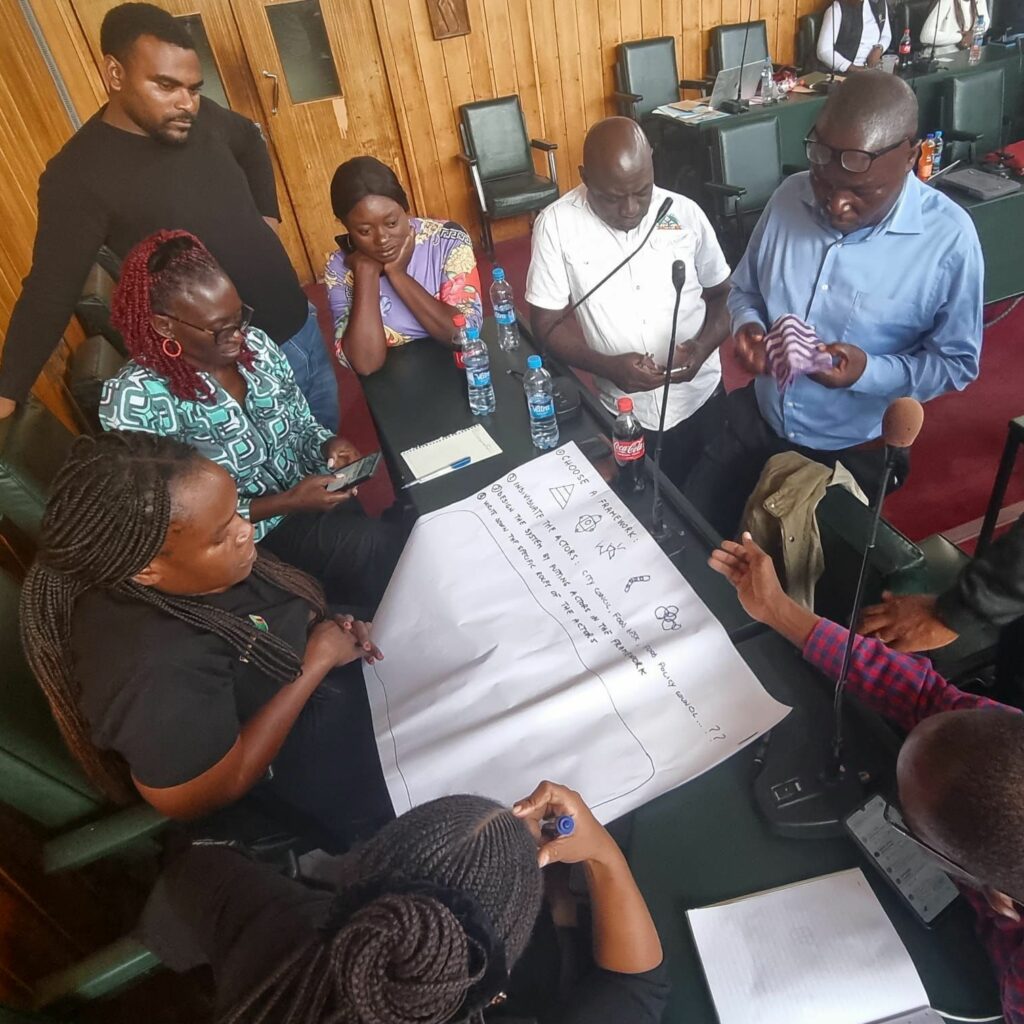
The Living Lab is part of the European H2020 project #AfriFoodlinks, which aims to improve food security linked to urban sustainability, with a focus on the African context and open innovation. Coordinated by @ICLEI Africa, the project involves 26 partners and, to varying degrees, more than 65 cities.
#AfriFOODlinks
#ThroughFood
#UrbanFoodSystems
#FoodGovernance
